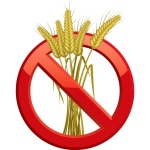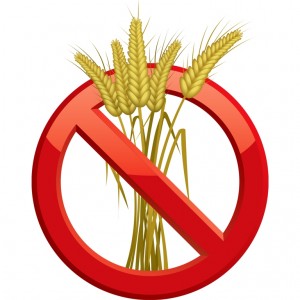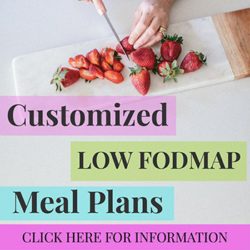Do IBS sufferers need a gluten free diet?
Most people think that eating a healthy diet means having a wide variety of low-fat and nutritious foods in moderation. However IBS sufferers have to avoid some of the healthy food too, as they may often find that certain uncomfortable symptoms seem to arise whenever you eat certain foods.
IBS patients usually find themselves in similar uncomfortable situation after consuming wheat products or foods with high amounts of wheat in them. People with IBS suffer an array of problems associated with wheat products, some of which are:
- Having regular headaches and stomach cramps
- Stomach/intestinal bloating
- Feeling of evacuating their food even after going to the toilet
- Loss of appetite
- Diarrhea as well as constipation
- Finding one’s insides ‘windy’ or ‘gassy’
A person may experience palpitations, eczema, dry skin patches and bouts of nausea after consuming food containing wheat.
For this reason a lot of IBS sufferers (that is what I did too) head to the healthy section of their supermarket and buy gluten free food such as breads, cakes, biscuits thinking they are doing something good for their health, unfortunately that is not the case.
Gluten Free Products are Not Necessarily Healthier
Gluten is a protein which is found in wheat that gives elasticity to dough. It is a combination of Gliadin and Glutenin, which is joined with starch in various grains. Glutenin is the major protein in wheat flour while Gliadin is what enables bread to rise properly. That being said, the reason gluten-free foods aren’t that healthy is because they contain ingredients, that although are free of gluten they are full of other toxic food such as: high-fructose corn syrup and table sugar, industrial seed and vegetable oils, highly refined starches like potato starch, tapioca starch and other processed ingredients, which are all high on carbs and low on protein and low on those nutrients that are beneficial for the body.
The problem occurs when people with IBS start to mistakenly think that they’re gluten-intolerant and gleefully buy gluten-free processed foods from the supermarket. Their concern further escalates when they don’t understand why they are still feeling uncomfortable. The truth is that some Gluten-free food products are potentially not healthy at all for those who suffer with IBS. For example, Gluten-free breads normally contain concentrations of apple juice and fructans, along with a host of various gums, which have been known to be pretty bad for IBS-ers. What makes matter even worse is that manufacturers fail to emphasize that these products are designed for people with celiac disease and not IBS.
The constant media hype which surrounds IBS sufferers and their wheat problem, automatically makes gluten the cause of the problem, which is absolutely not the case. What they don’t realize is that the fructans and other ingredients are the real enemy here.
Over the past few years, similar to the fat-free industry, the gluten-free industry has also jumped on to the commercial bandwagon, but the fact remains that gluten-free foods is just one of those pre packaged faux foods, which have not benefits, except that gluten-free products are 200% more expensive than regular gluten containing food products, so there is a positive side to the hype; unfortunately it’s on the manufacturers side of the river.
If you suffer of IBS, it is best if you prepare yourself food from scratch using the list of low FODMAP diet and have treats like cakes, desserts and breads made following one of the recommended recipes.
I am currently working on producing low FODMAP recipes, including vegetarians and vegans options, a free weekly meal plan, plus a celebration meal plan (Birthdays, Christmas and other important occasion).
If you subscribe to this blog, I will keep you informed when that will be ready.
For now take care,
xo Larah




Bit late but I was diagnosed with IBS years ago. Tablets did not help, could not lose weight. Referred to hospital dietician who put me on the FODMAP regime. 18 months later I cannot tolerate gluten at all. Cutting out wheat etc has resulted iny losing 3 stone in weight. I have found it very helpful however have not checked all foods yet in reintroduction phase. Still finding problems! Have not eaten g/f bread for months except on holiday and I was OK.
Thanks for these advise, but I can’t understand everything because I’m arabian
I have a little question: does what you rowt mean I can’t eat bread?
Sorry for my bad englishe 🙂
Hi Mariam, thank you for posting your comment. Bread made with grains such as wheat, rye and kamut contains high amount of Oligos-fructans and GOS (some bread may also be high in fructose) and therefore not suitable if you suffer from IBS. Some gluten-free bread, may be low FODMAP, it just depends if it contains any high FODMAP ingredients. Have you noticed IBS symptoms after eating bread?
Wow. Just wow. I had no idea about the gluten free foods being so unhealthy. It’s easy to get caught up in all the hype and assume that these foods are healthy for us. I have reached for gluten free alternatives so many times, with the pasta topping my list. I will definitely not make that mistake in the future. Thanks so much for this blog post, you have just saved me money and probably a few KG’s in body fat !
Unless you are intolerant to wheat or gluten, you are not going to have anymore benefits in eating gluten free products. People with IBS need to look the labels of gluten free food, because they may contain some high FODMAPs ingredients.
Hello Larah,
I’m from India and I observe some of the symptoms mentioned here. But the thing is that, I belong to northern part of India where the majority of food prepared at home is based on wheat only. Our breads (known as Roti) is made from wheat. Infact, we have them twice a day with different kinds of vegetables. And it is bit fearful to know if I’m suffering from IBS, I will have to give up on wheat products which at present seems really tough. But at the other side, it is good to know that how can I cure it. thank you Larah for such an interesting and descriptive article.
Hello Priya and thanks for your comment. I understand what you mean and I hope you will never have to give up your Roti bread. I did eat it before being diagnosed with IBS and it is truly delicious, like all Indian food.
ome patients who have been diagnosed with irritable bowel syndrome (IBS) report a lessening of symptoms when they follow a gluten-free diet. Before placing yourself on a restricted diet that may or may not be helpful, it is important to be educated as to what is known about any overlap among IBS, celiac disease and gluten sensitivity.
If you suspect that you have a gluten intolerance, the first thing you should do is to consult with your doctor and get tested for celiac disease. If the test comes back negative, discuss with your doctor about the possibility of engaging in an elimination diet for a period of approximately one month to assess the effect of such on your IBS symptoms. If celiac disease has absolutely been ruled out, your doctor may recommend that you resume eating foods with gluten to see if your symptoms reappear before coming to the conclusion that you are gluten intolerant.
Thank you! Everyone is always touting those gluten free products and that a gluten free diet is much healthier. I have never believed in it and I still don’t to this day. I like your explanation of it as it makes a lot of sense.
Thank you Mattyn, I’m glad you found this article useful. It is true there is a big hype on gluten free products, being healthier than the gluten ones (maybe because they sit in the health food aisles of the supermarkets), but that is not the case, they are ‘just’ gluten free, not free of artificial and processed ingredients anyway.
Thank you! I’m constantly annoyed by trends in dieting and ephemeral fads perceived as the gospel of health.
Yes, some people have serious gluten allergies, but the blanket “bad” people associate with it is no better than the atkins diet war against carbs. The price the majority of us pay by going along with these trends is that we sacrifice other aspects of our health along the way. Eating things we shouldn’t, and forgoing things we should.
I’m glad someone is saying it. IBS can put a real strain on one’s quality of life, and there’s too much misinformation out there. Thanks!
Yes very true, for me it took me IBS to go back to a diet of real, simple food. As I don’t know what is in packaged food, then I have to make it from scratch myself.
IBS seems like a debilitating syndrome that’s really tricky to manage. Constantly worried about the ingredients of food, is one of the bigger hassles a symptom can be. Like you said, commercial products are one of the worst foods because they’re filled with high-fructose products, and chemicals that clash heavily with IBS patients. It’s a mirage, and costs twice as much as buying regular ingredients and making a healthier alt. yourself. Hardly a easy syndrome to maintain, but at least it can be if taken the right precaution.
Thank you for your comment Roger. Yes, packaged food is generally not healthy, even if it’s gluten free.
It’s so horrible that things that are labeled good for us, aren’t really good for us. We need to take precaution when purchasing any pre-packaged types of food. I think your way is the best way; prepare food for yourself using IBS approved food, according to the FODMAP. I feel so terrible for people with your condition, because anything wrong you eat will bring on a lot of pain. It’s almost as if your life gets consumed by food, because you have to constantly think about what food to get/how to prepare it/how to stay away from the bad stuff.
I really do wish you goodluck, and hope you start feeling better soon!
Excellent advice! These days, it seems everything is labeled as gluten-free, almost as if it’s the next fad diet. It’s important to use common sense when you’re shopping at the grocery store. It sounds like IBS can be managed through diet, but it takes research and effort.
Thank you for your comment Annie Marie, yes very true, IBS sufferers have to watch out for those processed gluten free food, because they may be packed with high FODMAPs ingredients.
Hi King-Galaxius, thank you for stopping by my blog. Yes we need to do our own research, we can’t trust the big manufacturing company, they are in it just for the money, not our health. Being of Italian origin, it has been very hard to give up my daily pasta and bread, but I am used to it now, and I guess the fact that I do not live in Italy, makes it a bit easier (less temptations).
It is just amazing what so many of us take for granted in life. Being unable to consume wheat products is an example.
IBS patients cannot consume wheat products. This means that you and others cannot eat macaroni, either. Because, it too is a wheat product. I watched how macaroni shells are made. I watched an episode of the show Mr. Rogers Neighborhood years ago. I feel for your. But, I love Wheat Thins and Triscuit. To add, it sounds like gluten-free products are a bunch of hogwash, like retailers who may falsely label their products “organic” just for sales.